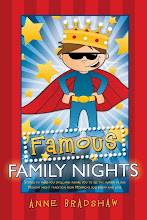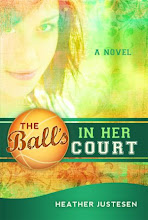By Heather Justesen
I was in high school, probably a freshman or a sophomore, excited to be in the school musical, loving the songs, the camaraderie, the funny little jokes and lines shared between cast members. Nope, can't remember which year it was, freshman or sophomore, but I do have a vivid memory of our director leading us through an exercise, which I think we can all use as writers.
The director had been acting on and off for his whole life and recounted one night when he was in his twenties, sitting on a cable car in San Fransisco and focusing hard on everything around him. The sights, the smells, the sounds. He studied the car and focused on the energy of the people around him, then tried to imprint that moment into his brain, so he could pull that experience out if needed for a play some day.
I do a similar thing as a writer. I'm always watching people's expressions, the way they interact, how they react to trauma (it never fails to amaze me what total whiners some adults can be when injured while a little kid hurt worse just sucks it up. Seriously). How do the family members or friends interact? Is that young woman more worried about her cell phone or her driver's license and credit cards in the purse that got tossed somewhere in the back seat? Does the mom freak out or freeze up when her kid is hurt?
There are a hundred ways for people to react to situations whether you're seeing them at the grocery story or in a crises, dropping the kids off for school or having a mother-daughter afternoon at the mall. Watch people, check out how they interact, study their body language, the setting, the scents, and sounds. The world around us is a rich place, full of details we can mine as fodder for our stories, it's a shame to waste it!
Friday, August 13, 2010
Great settings require authentic detail
Posted by Heather Justesen at 11:03 PM
Labels: descriptions, Heather Justesen, setting
Subscribe to:
Post Comments (Atom)

















1 comments:
Exactly right. I find myself thinking about the people I know best and how they react, but that gets boring. I need to broaden my scope. Thanks for the post.
Post a Comment